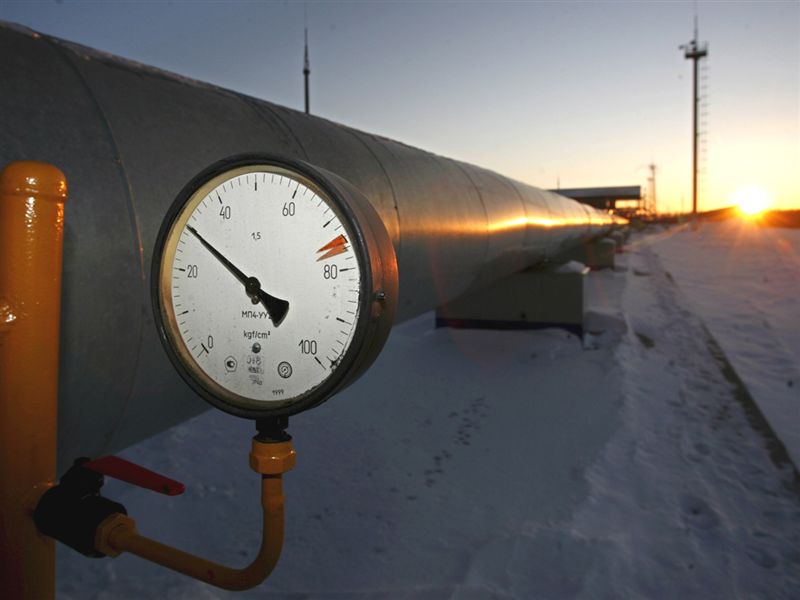
The Southern Corridor, the planned natural gas link to non-Russian resources in the Caspian and Middle East, will largely determine the future energy security of the European Union. At the moment, the corridor is merely a concept. Only piecemeal infrastructure is in place on the ground in Turkey, which is the key bridge between gas suppliers and consumers.
The decision on how the corridor will develop lies with SOCAR, Azerbaijan’s state-owned energy company. SOCAR controls the natural gas resources of Shah Deniz II, the first major field in the Caspian set to supply EU consumers. Russia’s Kremlin-controlled energy company Gazprom has attempted to undermine the Southern Corridor concept by offering to buy all of Azerbaijan’s gas. Almost as contentious is the struggle between the three Western-oriented energy consortia that would each like to see their pipeline as the center of the corridor’s development.
That struggle was on full display on September 30, 2010, at the Atlantic Council’s Black Sea Energy and Economic Forum in Istanbul. In a lively panel, every major player got to have a say. Rovnag Abdullayev, the President and CEO of SOCAR made it clear that his company is assessing all options, but is not yet close to a decision. Azerbaijan’s priority, he argued, is to be a stable source of supply to Europe, which can be achieved through pipelines, large or small, or even liquefied or compressed natural gas shipments across the Black Sea.
Reinhard Mitschek, the managing director of Nabucco Gas Pipeline International, touted his gargantuan 31 billion cubic meter (bcm) proposal for a line that would stretch from Turkey’s interior through Central Europe to bring Azerbaijani and potentially Iraqi or Turkmen gas to Baumgarten, Austria’s European energy hub. But small is beautiful, according to Elio Ruggeri, the CEO of IGI Poseidon. His 8 bcm project, better known as ITGI or Interconnector Turkey Greece Italy, he argues, is halfway there and the only connection to be finished is across the Adriatic.
Kjetil Tungland, the managing director of the Trans-Adriatic Pipeline (TAP), tried to bridge the gap. Like Ruggeri, he argued his 10 bcm pipeline is more realistically achievable because of its smaller size, but it also has the option of expanding capacity to 20 bcm. The route is also different, as TAP passes through Greece and Albania before crossing to Italy. Its flexibility and geographic dimension could make TAP both commercially and strategically competitive, but at the moment it lags behind rivals in political and diplomatic support.
Appropriately, the panel’s moderator was Ambassador Steven Mann, former coordinator for Eurasian Energy Diplomacy at the U.S. Department of State. His role highlighted the key position of the United States over the years in connecting Eurasian energy producers with EU consumers across the Black Sea region. The famed Baku-Tbilisi-Ceyhan (BTC) oil pipeline from the Caspian to the Mediterranean set the stage for the Southern Corridor routes currently under consideration and benefited from strong U.S. support.
But, this time around, European capitals and institutions are going to have to step onto the stage. After all, it is their energy security that will benefit once the corridor is under construction. The first step in this direction might be for the European Commission to actively support all of the proposed projects, not just their current favorite, Nabucco. Commercial considerations should—and will probably in the end—determine the future of the corridor, so the European Bank for Reconstruction and Development (EBRD) and the European Investment Bank (EIB) ought not to put all their eggs in one basket in promising funding for Nabucco.
Out of the competing arguments on display at the Black Sea Energy and Economic Forum can hopefully come guidelines for building a smarter Southern Corridor that is both commercially viable and strategically significant. As SOCAR determines where to send its gas and the EU Commission determines which project to support politically, the answer may lie in a meeting of the minds between Brussels and Baku.
Alexandros Petersen is a nonresident senior fellow with the Atlantic Council’s Dinu Patriciu Eurasia Center.
Image: PipelineGauge.jpg
